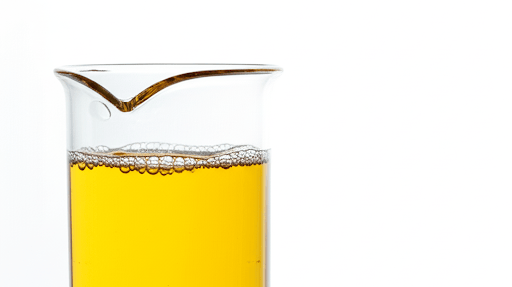Startup Disrupting Bio-Ethanol Production with Its Biofractionation Technology
SUSTAINABILITY


This is an AI generated illustration and does not represent actual product or service.
The global demand for sustainable biofuels, particularly ethanol, continues to rise as industries and governments seek greener alternatives to fossil fuels. However, traditional ethanol production methods face significant challenges, including high energy consumption, contamination risks, and reduced yields due to microbial contaminants like Leuconostoc mesenteroides, which convert fermentable sugars into non-fermentable dextrans.
G2B Biosolutions has developed a biofractionation method for ethanol production that addresses these challenges. Their patent pending technology leverages probiotic microorganisms to bio-preserve sugar-rich feedstocks (such as molasses), eliminating the need for energy-intensive sterilization while improving ethanol yield and reducing freshwater consumption.
The Problem with Traditional Ethanol Production
Conventional ethanol production from sugar-rich feedstocks like molasses faces several key issues:
Microbial Contamination – Molasses often harbors contaminants like Leuconostoc mesenteroides, which convert sucrose into dextran, reducing fermentable sugar availability and increasing viscosity, leading to processing difficulties.
Energy-Intensive Sterilization – Traditional methods rely on thermal treatment, acid washing, or antibiotics to control contamination, all of which are costly and environmentally taxing.
Reduced Ethanol Yield – Contaminants produce lactic and acetic acids, which inhibit yeast fermentation, lowering ethanol output.
Water and Energy Waste – High-temperature processing and frequent cleaning cycles increase water and energy demands.
G2B Biosolutions’ Biofractionation Solution
G2B Biosolutions’ patented method introduces a probiotic-based bio-preservation system that eliminates the need for thermal sterilization while enhancing fermentation efficiency. The key innovations include:
1. Probiotic Pretreatment of Sugar Syrups
Instead of using heat or chemicals, G2B Biosolutions employs a microbial and enzyme cocktail consisting of:
Lactobacillus sakei – Suppresses Leuconostoc mesenteroides and other contaminants.
Fusarium venenatum – Prevents airborne fungal contamination.
Lactobacillus bifidus (Bifidobacterium bifidum) – Secretes dextranase, breaking down existing dextran into fermentable sugars.
This bio-preservation step ensures microbial stability without antibiotics or excessive energy use.
2. Continuous Fermentation with Optimized Dilution Rates
G2B’s method employs a multi-stage continuous fermentation process that maximizes efficiency:
Fermenter 1: Dilution rate of 0.10–0.55 h⁻¹, maintaining 5–11% ethanol to inhibit contaminants while keeping yeast active.
Fermenter 2: Dilution rate of 0.04–0.10 h⁻¹, achieving 10–13% ethanol.
Fermenter 3: Further refines ethanol to 12–15% before distillation.
This approach minimizes downtime, reduces contamination risks, and enhances yield.
3. Sugar Syrup as a Fermentation Booster
In starch-based ethanol production (e.g., from grains), G2B’s pretreated molasses can be added as a sugar booster during fermentation, increasing ethanol concentration without introducing contaminants.
Key Benefits of G2B Biosolutions’ Technology
✅ Higher Ethanol Yields – Dextran hydrolysis and reduced contamination increase fermentable sugar availability.
✅ Lower Energy Use – Eliminates thermal sterilization, cutting energy costs by up to 30%.
✅ Reduced Water Consumption – Fewer cleaning cycles and no need for excessive dilution.
✅ Antibiotic-Free Process – Probiotics replace antibiotics, ensuring cleaner co-products (e.g., protein feed).
✅ Improved Protein Byproduct – The process yields high-purity protein suitable for animal or human consumption.
Applications & Market Potential
G2B’s technology is versatile and can be applied to:
Molasses-based ethanol plants (sugar cane, beet)
Grain-to-ethanol facilities (wheat, corn)
Cellulosic ethanol production (agricultural residues)
With increasing global ethanol demand—driven by biofuel mandates and sustainability goals—G2B Biosolutions’ innovation presents a scalable, cost-effective, and eco-friendly alternative to conventional methods.
Conclusion
G2B Biosolutions’ patent pending method represents a paradigm shift in ethanol production, combining probiotic bio-preservation, enzymatic dextran breakdown, and optimized continuous fermentation to deliver higher yields with lower environmental impact. By eliminating energy-intensive sterilization and antibiotic use, this technology not only improves efficiency but also aligns with the global push toward sustainable and circular bioeconomy solutions.
As industries seek greener and more efficient biofuel production methods, G2B Biosolutions could lead the next wave of clean ethanol innovation.
About G2B Biosolutions
A biotech startup focused on sustainable fermentation technologies for biofuels and high-value protein products. Their patent pending bio-fractionation methods reduce energy use, water consumption, and contamination risks in industrial bioprocessing.


